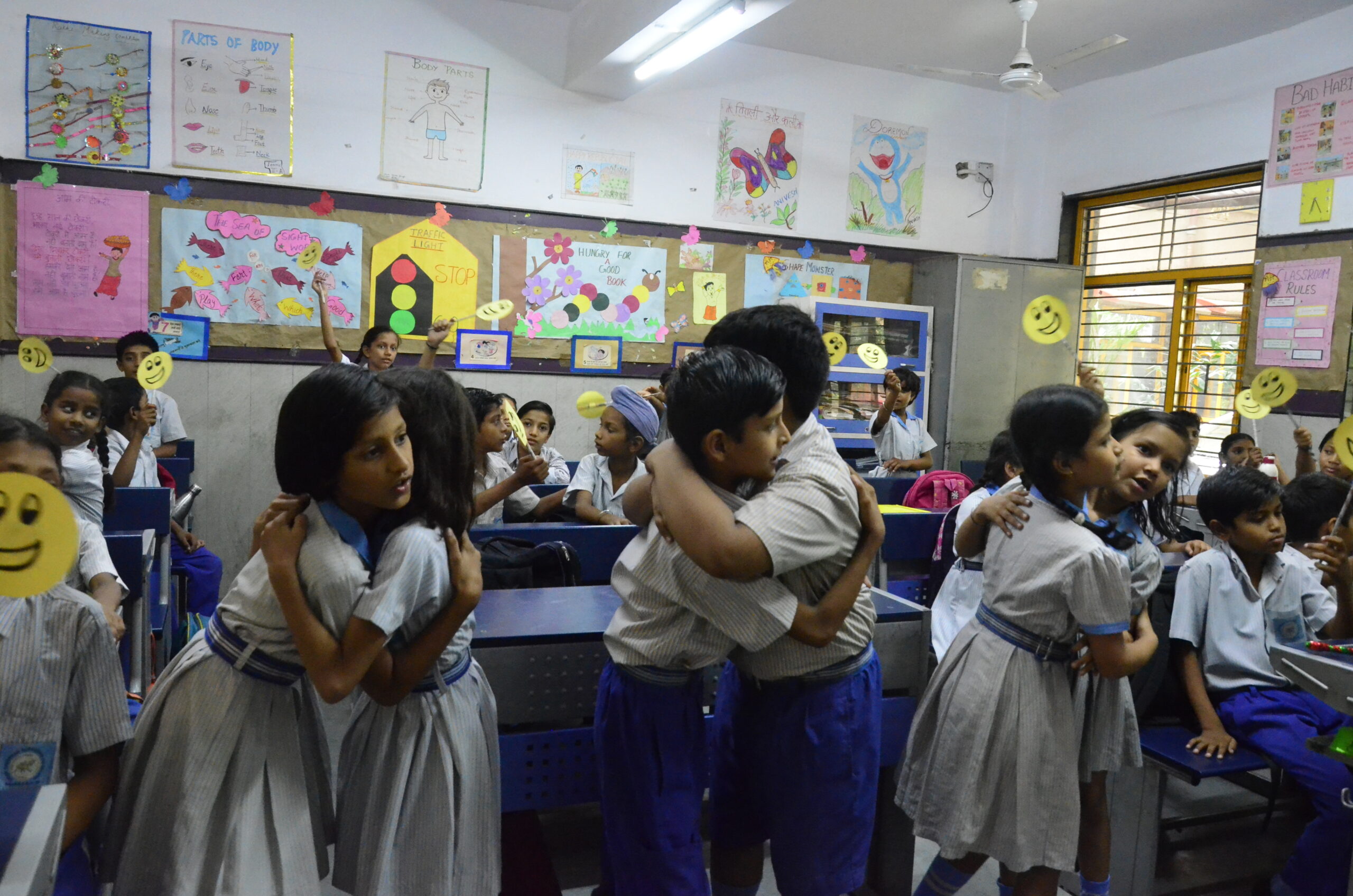Shiva, noticing a lack of intergenerational communication, wants to open up a youth centre in his village, where elders and youth interact, share and learn together. Varshitha dreams of starting an academy to provide low-cost professional makeup training to ambitious young people from low income backgrounds. Richard has trained more than 200 youth by facilitating a free photography course at Thriving Centre, K R Puram (Bangalore). These stories are of the Dream a Dream programme graduates and these are no exceptions. Time and again, we have seen young people and alumni of our life skills programmes show an innate desire to take everyone along- their families, friends, communities towards personal and socio-economic growth. With similar lived realities, they understand the complexities faced by others growing up in adversity. Often assuming adult roles before time- taking care of self, siblings, elderly, providing financially, managing household chores, studies etc.; for them, success is not personal, but collective. It is the sense of being useful to the community, developing agency to make choices, connect and heal together to thrive.
With India’s young population (age 15- 29 years) projected to be 345 million by 2036, we have an opportunity to enable our future generation to be brilliantly creative people, problem solvers, changemakers with empathy for self, others and nature to know how their solutions affect others and the planet. Empathy is the ability to try to put oneself in another’s place and experience their feelings. Discovery of mirror neurons in Neuroscience has proven the existence of empathy in human beings. Yet when a 2022 study, published in the Indian Journal of Psychological Medicine, assessing MBBS (Bachelor of Medicine, Bachelor of Surgery) students for empathy and interpersonal reactivity for two years found a significant decline in empathy for all students, irrespective of gender, it points to an unaddressed problem, correlating this decline with psychological stress. When we force fit naturally empathic students into an education system, plagued with colonial legacy, glorifying scores over values, one-upmanship over collaboration, individual success over collective growth, we push them to look at others as the ‘enemy’, creating conflict and a fractured unsustainable world. When we ask young people to toughen up and not show vulnerability, we are asking them to wear a mask of invincibility. When empathy for self dies out, this mask starts wearing off showing signs of trauma and repression.
The World Youth Skills Day 2023 recognises the essential role of teachers, trainers and educators in “providing skills for youth to transition to the labour market and to actively engage in their communities and societies”. These skills cannot be limited to vocational or hard skills. With the COVID-19 accentuated inequalities affecting long-term livelihoods and decent work for all, vocational training alone is not sufficient for a young person who lacks access to opportunities, choices, employment and a life of dignity because of their ascribed identity. The OECD Future of Education and Skills 2030 report highlights that social and emotional skills including empathy are essential to be part of an ethnically, culturally and linguistically diverse global workforce. Empathy is a transferable skill that can be applied in different situations to ensure peace and prosperity. When billions share a planet and its resources, education needs to be a lens for us to see our interconnectedness to other living beings and the planet, else our fears and anxieties become amplified in systems that celebrate comparative ‘success’.
Let us not push our young people to excel without any compassion. It is pivotal to create systems which allow them to identify and accept their own and others emotions. Empathy enables us to question the assumptions we make about what learning should look like for young people, without asking them. It invites us to understand the context of those living in adversity without judging them as ‘lazy’, ‘unambitious’ or ‘irresponsible’. It is time to bring empathy into our relationships, replace the ‘I’ with ‘we’, to co-create what makes us truly happy and thrive! Let us design systems which celebrate the unique strength of every young person and provide a safe space for them to share authentically, as vulnerability arouses empathy and kindness.
Contrary to the “outside-in” approach of skill building, programmes to channelise empathy need to be experiential learning opportunities built around young people’s innate capacities for self-awareness and reciprocity. When we encounter kindness, it impacts how we feel about ourselves, about each other and we start caring about how healthy our relationships and communities are. It is time to align what young people define as success and how we measure success. Systems need to address existing and anticipated skill gaps and protect the most vulnerable by increasing access to opportunities for inclusive growth, enabling youth agency and bridging divides. We need empathy – for self, for fellow living beings, for our planet and natural resources to reconnect, act with compassion and co-create a sustainable world to thrive as a planet. This World Youth Skills Day, it is perhaps the larger ecosystem that needs to upskill themselves with what is needed most today- Empathy!


